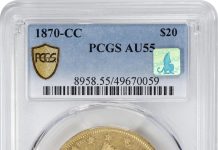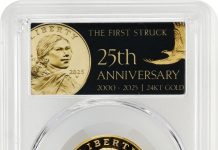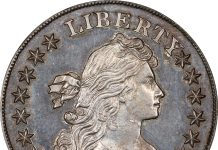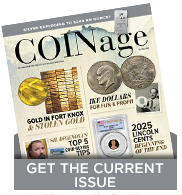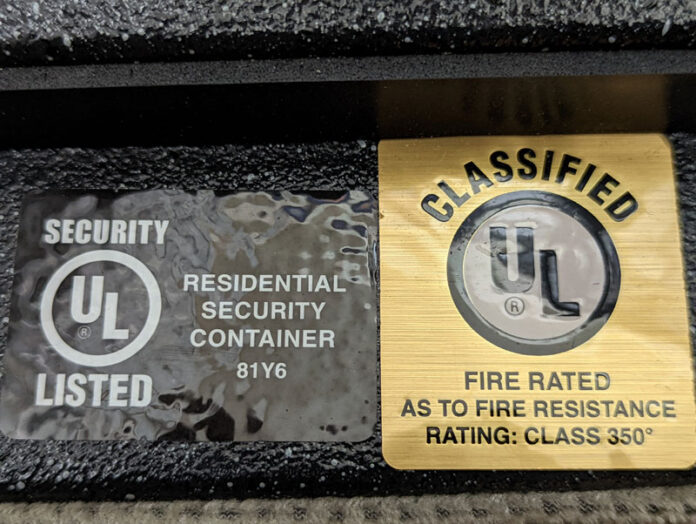
Safe coin collecting storage is a speciality for Victor J. Gonzalez as he’s been involved in the insurance industry since 1985. After a successful accounting career with the U.S. Air Force, he gained employment at insurance giant Marsh McLennan, where he remained for six years, rising to the position of senior account manager for the Southwest region. His insurance adventure continued with his co-founding Cleland & Associates, where he has remained for over three decades. Gonzalez underwrites insurance for over $300 million worth of rare coins and gold and silver bullion.
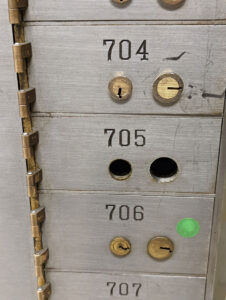
Is the recent compromise of private depositories a disturbing trend to you?
Any time there’s a loss of millions of dollars of rare coins and precious metals, you realize the vulnerability of storage methodologies. In the case of depositories, inventory of high value is stored under one roof. That can be very tempting to a dishonest depository owner. These owners have unique administrative access to items of exceptionally high value, as opposed to the double key security and other precautions often taken by banks to prevent temptation.
How can a coin collector take precautions at a bank safe deposit box?
First, interview the bank, and get an assurance that it’s in it for the long haul. Banks that now have policies disallowing new box rentals and dissuading current box owners should be avoided.
A red flag is if you walk into a bank and see the vault door open; that should be an indicator of the lack of security at that bank. That vault door needs to be closed. Another red flag is a bank representative not confirming that your safe deposit box door is locked when you’re ready to leave. It’s common sense that a government-issued ID is used to identify you for access in the first place.
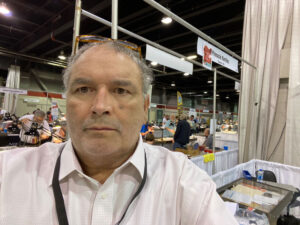
COURTESY CLELAND & ASSOCIATES INSURANCE
Do you think that some banks don’t want to service people who have safe deposit box needs?
Yes, I think so. The safe deposit box is always going to be a money loser for the bank, and as the financial industry has evolved, personal customer service is not a high priority. Bank employees are now used to customers serving themselves in many ways.
Lots of banks are cutting back on lobby employees. Many bank employees now consider it to be an imposition if a customer comes in and asks for safe deposit box access. Many banks are now opting to not even offer safe deposit box service.
What’s the solution to storing your stuff in times of transition?
In general, the new solution to storing your valuable stuff is to bring it home. Get yourself a good safe. Get a tool-resistant safe, a decent alarm and a camera and motion detector. Most importantly, feel free to call upon me for advice, whether or not you are a client. I promise to answer all inquiries: vjgonzalez@aol.com
What’s the best tool-resistant safe?
A rule of thumb: For up to $250,000, an Underwriters Laboratory (UL)-rated Residential Security Container bolted to the floor will suffice; up to $500,000, a UL-rated Tool Latency (TL)-15 will do the job; up to $1 million, look at a TL-30. The numbers, 15 and 30 respectively, represent how long in minutes UL estimates the average burglar will require to open the safe’s door using reasonably available tools.
In all of the years I’ve covered coin dealers with insurance, only one safe was ever broken into, and it took an entire weekend to break into the safe. It was a free-standing TL-15 not even bolted to the floor. Underwriters create the criteria to price insurance policies. But I can tell you even a TL-15 is very difficult to compromise.
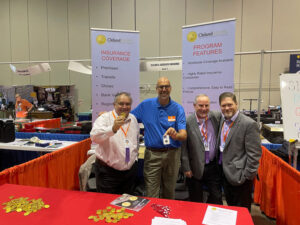
COURTESY CLELAND & ASSOCIATES INSURANCE
What’s the cost of insurance?
The cost of insuring your coin collection through your homeowners’ policy is about 2% of the value per year. Through a company such as mine which represents the Travelers, the cost would be 0.5% per year of the value.
How Safe is Registered Mail from the United States Postal Service?
I used to be able to say that Registered Mail is sacrosanct. However, we’ve had at least ten massive losses in the last year or two. One client had three Registered Mail pieces stolen while in transit. Each contained over $100,000 in value. The Travelers paid out the full claim, less the deductible. Sorry to yank everyone’s security blanket away.
How about a holdup?
That’s the biggest peril. Always keep information about your safe and rare coin acquisitions away from everyone except yourself. If you’re held up, hand over your inventory. Your life is always worth more.
This article about coin collecting storage previously appeared in COINage magazine. To subscribe click here.



